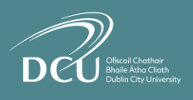About Msc In Dementia Nursing Practice in Dublin City University
Using a flexible and blended mode of delivery, students engage in both face to face and virtual learning environments. In addition to seminars from multidisciplinary practitioners, participants engage in group and simulated learning experiences that are further enhanced by learning in practice. Students are allocated an academic and practice supervisor with expertise in their chosen practice area, who provides support, guidance, and forms part of a tripartite team, in developing and assessing a practice portfolio.
Graduate Certificate students take three ten credit dementia-specific modules (1 per semester) focusing on person-centred dementia care, therapeutic responses for people with dementia and dementia and everyday ethics.
Graduate Diploma and MSc students take the three ten credit dementia-specific modules (1 per semester) and three, core, ten credit modules (1 per semester) that focus on professional role development, leadership and collaboration, and research skills.
In the final six months, MSc students take a core 30 credit module, which includes advanced research learning and the completion of a research dissertation.
Careers
This programme will support healthcare professionals who wish to further their career in a particular area of practice, e.g. where there are opportunities for developing new services, models and roles, or for specialist and advanced practitioner roles in healthcare provision. It will also help professionals gain valuable postgraduate clinical/practice education, thereby helping them to progress in their chosen career.
Academic qualification equivalents
- Typically, you need a First Class Bachelor’s degree from a recognised top ranked university and/or affiliated colleges with a minimum of 60% average across all semesters. Students who have studied at a lower tiered institution may be considered with an overall average mark of 65% or above.
English language requirements (one of the below):
- IELTS for Postgraduate Taught Programmes: Overall score of 6.5 or above, with no less than 6.0 in any one skill. Additionally DCUBS require 6.5 in Speaking and Writing.
- TOEFL: Total Score of 92. DCU Business School additionally requires all section scores 21 or above.
- PTE Academic: Minimum score of 63, with no section score below 59
Dublin City University Highlights
| University Type |
Public University |
| Campus Setting |
Urban |
| Establishment Year |
1975 |
| No. of Campuses |
3 |
| No. of Residence Halls |
3 |
| International students |
2,337
71% in UG, 29% in PG courses |
| Research Funding |
~35 million EUR |
| Cost of Attendance |
~22,500 EUR |
| Applications Accepted |
Online/Offline |
| Work-Study |
Available |
| Intake Type |
Semester wise |
| Mode of Program |
Full time and online |
Dublin City University Average Tution fees And Other Expenses
Foreign students who wish to enrol at Dublin City University must be aware of the associated costs in order to budget appropriately and apply for scholarships when needed. The tuition costs for well-known programmes and other expenses related to studying in Ireland are covered below.
Tuition Fee for Dublin City University
Here are the details of the UG and PG fees for international students planning to study at any of the following faculties.
| Programs |
UG (EUR) |
PG (EUR) |
| Engineering |
15,000 |
17,000 |
| Business |
14,000 |
16,000-19,000 |
| Humanities |
15,000 |
15,000 |
| Science |
15,000 |
15,000 |
| Education |
12,600 |
13,700 |
Dublin City University Cost of Living
The cost of living here includes monthly expenses an international student would require to study at Dublin City University:
| Expense |
Monthly Cost (EUR) |
| Rent (On-campus) |
692-1216 |
| Rent (Off-campus) |
850-1300 |
| Food |
250 |
| Travel |
132 |
| Books and Materials |
75 |
| Medical |
45 |
| Miscellaneous |
178 |
| Total |
Approximately 2,222 |
